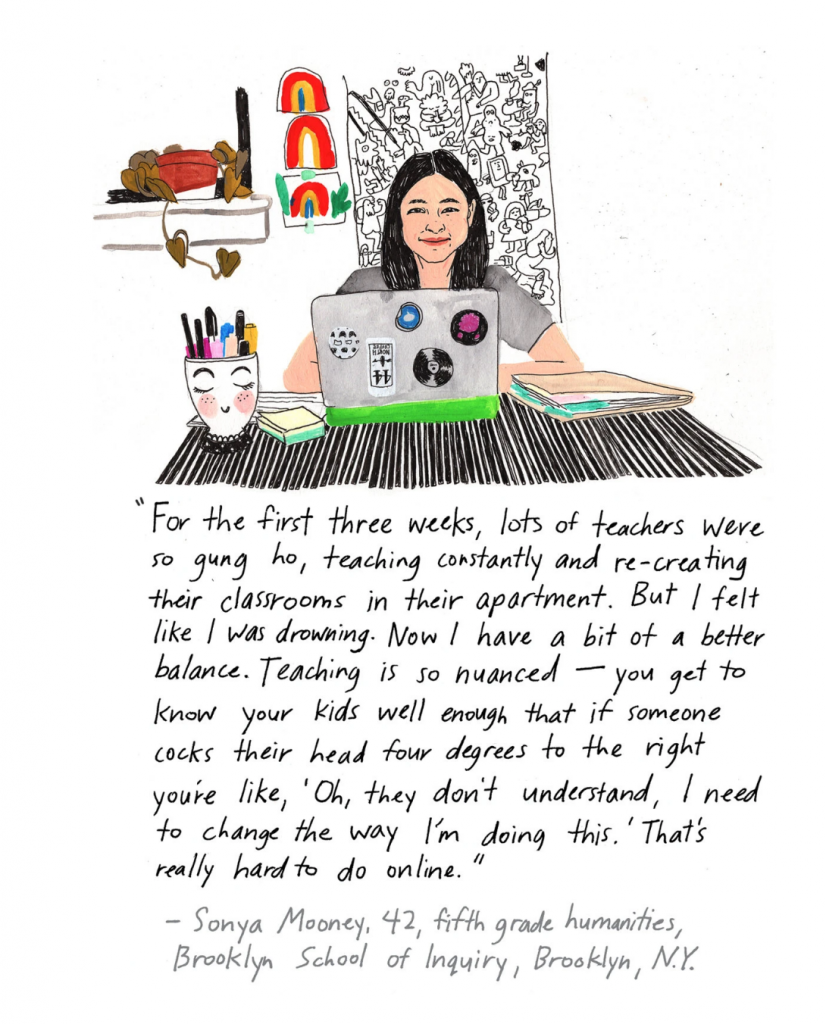I am reading an article in Her Words titled “I’m Teaching Into a Vacuum: 14 Educators on Quarantine Learning.” In this article 14 educators share their feelings, experiences and opinions about teaching online. There is one particular teacher whose words grabbed my attention. In particular, the line
“Teaching is so nuanced – you get to know your kids well enough that if someone cocks their head four degrees to the right you’re like, ‘Oh, they don’t understand, I need to change the way I’m doing this.’”
As I read this, I am reminded of Google’s famous Project Aristotle where researchers studied teams in every possible way to figure out what set them apart to excel at Google. One of the project findings was that good teams had a high average of social sensitivity, meaning “they were skilled at intuiting how others felt based on their tone of voice, their expressions and other nonverbal cues.
I asked myself, “How is that going to work in an online working environment?”
As I wondered, I was taken to yet another profound assertion made by Cal Newport, the author of the New York Times bestseller, Deep Work. Newport writes that humans are Social Super Computers. He demonstrates the incredible human brain capacity using a Rock Paper Scissors Story.
Shockingly, Rock Paper Scissors is a sport and was for some time televised on ESPN. On the surface, Rock Paper Scissors may seem to be based solely on luck, but if you watched on ESPN, you would also notice that the same people win over and over again. So, what skills were they deploying to win? It turns out, the elite players in Rock Paper Scissors are masters at reading people’s subtle body language and verbal cues, and predicting what hand their opponent would throw.
The truth is all human like the Rock Paper Scissors “athletes,” are social super-computers. It is one of the things we evolved to become, and when we don’t use this massive computing power, we are left feeling unfulfilled. Humans crave rich social interaction and communication; however, social media platforms provide superficial information that only teases at best our super social brains.
Whereas, a face-to-face conversation, even if only for one minute is filled with an immense amount of information. In a few seconds, the human brain can determine a person’s mood, health, age, and so much more. The face-to-face contact is what we, humans, have found richly satisfying.
Unfortunately, modern, technology, has many resolve to low-quality forms of communication like text messaging over high-quality forms of conversation, such as a phone call or a face-to-face interaction.
As someone who is heavily dependent on engaging with people for the success of the work, I am perplexed and unsure of the future of online engagements. What I am sure of is that the online engagements dilute one’s learning experience, and this is seldom noticed because of the huge amount of cognitive capacity required to stay focused.
Early signs of success for corporate educators in a virtual setting indicate:
- Increased reach : I have suddenly seen an increased client base in the US post COVID- 19. The data is telling me that when people know there is no other option, they would work online. Now that the physical presence of the person is no longer a criteria, people are more willing to search online and work with global thought leaders.
- Chunked learning, which leads to longer interaction. Instead of spending a day or two with the participants, I am now spending 2 hours per week for 4 weeks with them.
Even though I can see some clear positives during these early stages of online learning trend, the aggregated value is never going to be strong enough to overtake the insurmountable power of the human social intelligence that can be generated from a face-to-face interaction. But I am also certain, solution to this problem is just days away.
Sources
https://www.nytimes.com/2020/05/21/business/coronavirus-teachers.html
"I attended your story telling course some time back. And I've enjoyed keeping up my knowledge with your blog. You may not have realised however, that the Whole of Government is implementing Internet Seperation. Hence I'm not able to access the links to read your articles. Could I suggest including a QR code in your emails so that I can use my mobile to scan it and gain immediate access to the article? It would be most helpful"











